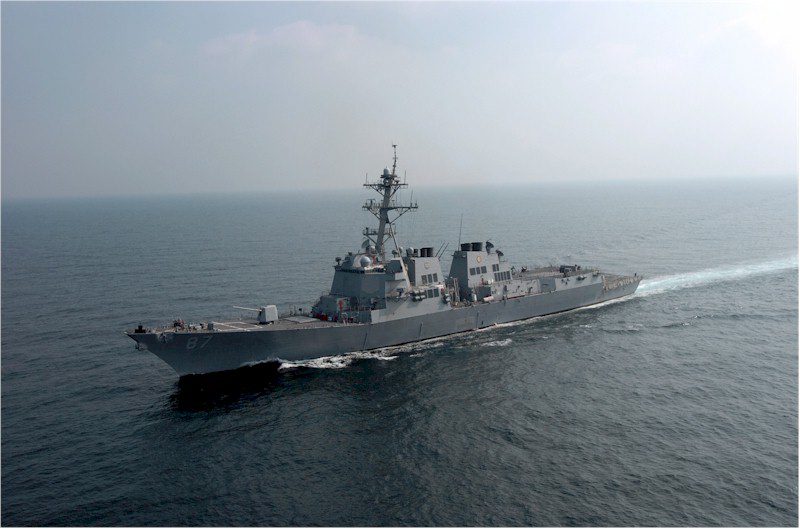U.S. Navy Photo
 Update (Oct. 17, 2016): The Pentagon declined on Monday to say whether the USS Mason destroyer was targeted by multiple inbound missiles fired from Yemen on Saturday, as initially thought, saying a review was underway to determine what happened.
Update (Oct. 17, 2016): The Pentagon declined on Monday to say whether the USS Mason destroyer was targeted by multiple inbound missiles fired from Yemen on Saturday, as initially thought, saying a review was underway to determine what happened.
“We are still assessing the situation. There are still some aspects to this that we are trying to clarify for ourselves given the threat — the potential threat — to our people,” Pentagon spokesman Peter Cook told a news briefing.
“So this is still a situation that we’re assessing closely.”
Read More: Pentagon Voices Caution on Latest Missile Incident
—
By Idrees Ali
WASHINGTON, Oct 15 (Reuters) – A U.S. Navy destroyer was again targeted in the Red Sea in an apparent failed missile attack launched from the coast of Yemen, a U.S. admiral said on Saturday.
U.S. defense officials said late on Saturday an initial assessment given by Admiral John Richardson, the chief of naval operations, had yet to be finalized and the incident was still being reviewed to determine exactly what happened.
The missile attack, if confirmed, would mark the third time the USS Mason was fired upon in international waters in the past week from territory in Yemen controlled by Iranian-aligned Houthi rebels.
“The Mason once again appears to have come under attack in the Red Sea, again from coastal defense cruise missiles fired from the coast of Yemen,” Admiral John Richardson, U.S. chief of naval operations, said during a ship christening in Baltimore.
Another U.S. defense official, speaking on condition of anonymity, later told Reuters: “We are aware of the reports and we are assessing the situation. All of our ships and crews are safe and unharmed.”
The latest incident comes just two days after the U.S. military launched cruise missiles against three coastal radar sites in areas held by Houthi rebels in Yemen in response to the two previous failed missile firings against the Mason.
Initial reports on the latest incident, according to another U.S. defense official, said the crew detected multiple missiles fired toward the Mason, which responded with onboard countermeasures to defend itself. No damage was reported to the vessel or other ships accompanying it.
Thursday’s U.S. counter-strikes, authorized by President Barack Obama, marked Washington’s first direct military action against suspected Houthi-controlled targets in Yemen’s conflict and raised questions about the potential for further escalation.
The Houthi movement earlier this week denied responsibility for the missile attacks on the Mason and warned that it too would defend itself.
The Pentagon on Thursday stressed the limited nature of the strikes, aimed at radar that it suspected enabled the launch of at least three missiles against the Mason on Sunday and Wednesday.
Pentagon spokesman Peter Cook said at the time that the U.S. counter-strikes were not connected to the broader civil war in Yemen, which has unleashed famine and killed more than 10,000 people since March 2015 in the Arab world’s poorest country.
The United States, a longtime ally of Saudi Arabia, has provided aerial refueling of warplanes from a Saudi-led coalition striking Yemen and it supplies U.S. weapons to the kingdom.
Iran, which supports the Houthi group, said last week it had deployed two warships to the Gulf of Aden, to protect ship lanes from piracy. (Writing by Matt Spetalnick; Editing by Diane Craft)
(c) Copyright Thomson Reuters 2016.

 Join The Club
Join The Club











